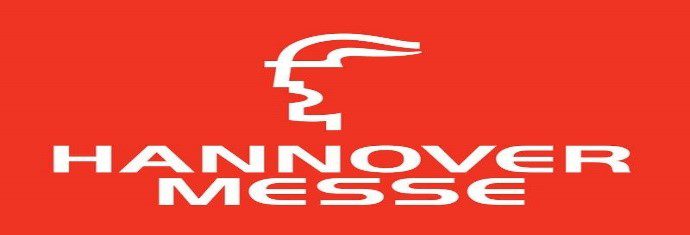Indonesian Tech Companies to Go Public? Vaccine rollout plans and the prospect for economic recovery have boosted optimism in the Indonesian stock market once again after 2020 when the stock exchange recorded a five-times record low because of the COVID-19 pandemic.

Indeed, a Nikkei Asian Review analysis published on Jan. 11 sounded upbeat. The analysis illustrated how, on the first trading day of 2021, the Indonesia Stock Exchange (IDX) was almost able to match its most valuable listing throughout 2020.
After what was an extremely gloomy year, market investors can now start to hope for a strong year in Indonesia, according to the article.
A number of economists expect homegrown tech companies to produce more valuable stock market listings in 2021. The omnibus jobs law passed in 2020 to improve the business environment, as well as new regulations stipulating corporate tax cuts, are also seen as potentially providing a further stimulus.
To cite another positive outlook for retail investors, quite recently, the Indonesian Central Securities Depository (KSEI) revealed that in December 2020, the number of retail investors in Indonesia, as measured by the number of single investor identification (SID) numbers, amounted to 3.87 million.
The was a significant increase compared with December 2019, which stood at 2.47 million SIDs. The increase in retail investors could actually serve as an increase in market potential, thus giving a green light for a lot of companies that had always wanted to go public but were still unsure about it.
In recent times, many local start-ups, including Indonesian technology companies such as Tokopedia and Gojek, have reportedly considered going public in the near future.
Tokopedia corporate communications vice president Nuraini Razak confirmed that the company was considering a dual-listing option for its stocks in Indonesia and the United States as US retail investors are more familiar with the business models of Tokopedia. Nuraini said that Tokopedia had appointed two consultants, Morgan Stanley and Citi, as its advisors in its attempt to go public.
Taking these positive indicators into account, Centre for Strategic and International Studies (CSIS) researcher Dandy Rafitrandi said that local unicorns valued at more than US$1 billion, could actually consider conducting an initial public offering (IPO) to secure funds, owing to their stronger valuations compared with digital start-ups. Indonesia currently has six unicorns, including e-commerce platforms like Tokopedia, ride-hailing app Gojek, as well as digital payment service OVO.
Although no Indonesian tech companies have yet gone public, they could have a positive ripple effect on fellow players if they choose to do so, according to Dandy.
“Some tech companies might see the prospect of going public in Indonesia as a heavy bet because local retail investors are yet to truly understand the business model of tech companies. Hence the expectation of gaining a return-on-investment [RoI] right away, without understanding that tech companies are valuable in terms of the potential gains they can offer their investors,” Dandy told The Jakarta Post over the phone on Feb. 5.
“Yet, this is a chicken-and-egg conundrum. In fact, by going public in Indonesia, local unicorns can gradually educate the public about the nature of their business models,” he said. Meanwhile, Dandy said, US retail investors felt more confident about investing in tech companies due to the significant number of publicly listed tech companies there, thus the public is familiar with such business models.
“Furthermore, by going public, these companies will also impact fellow homegrown tech companies positively. Perhaps these tech companies also want to go public, yet none of them wants to take the risk of being the first one to conduct an IPO in Indonesia. In fact, by being the first, they can actually gauge the market response and evaluate,” he added.
At the same time, by going public, these tech companies can familiarize regulators about their business models to encourage further relaxations for the sector, according to Dandy.
On the topic of relaxation, currently, the IDX is drafting a regulation to make it easier for the e-commerce sector to go public.
IDX bourse corporation valuation director I Gede Nyoman Yetna said that the currently deliberated regulation would focus on protecting investors from risks by familiarizing them with the characteristics of the tech companies about to go public.
“For instance, when we speak of conventional companies, typically investors will look at their bottom line, their profits. Yet, e-commerce platforms and their fellow tech companies look at growth opportunities completely differently,” he told Kontan.co.id.
He added that currently, the IDX was in close coordination with other regulators, most prominently the Financial Services Authority (OJK) to encourage local start-ups to go public. The regulators are also looking at the benchmarks of how other countries’ stock markets and regulators adjust their regulations to the business models of these tech companies.
The relaxation plan, among others, will allow companies that have yet to turn a profit within two years to go public, as reported by Kontan.co.id.
According to Institute for Development of Economics and Finance (INDEF) senior economist Aviliani, these regulatory relaxations will make it easier for local tech companies such as Tokopedia and Gojek to go public.
Regulators’ increasing confidence in local start-ups’ attempts to go public can also pave the way for the development of a better ecosystem for local tech companies that have gone public in Indonesia.
Another INDEF economist Bhima Yudhistira, contacted separately, mentioned some challenges that needed to be addressed by local tech companies should they decide to go public.
“Public investors are different from angel investors. Public investors are heavily oriented toward getting dividends. The tech companies can no longer use the cash-burning strategy. This is why some tech companies have shifted their business models to financial technology [fintech], with the financial sector being the most profitable sector,” Bhima told the Post on Feb. 5 in a phone interview. Indonesian Tech Companies to Go Public? (Sebastian Partogi, The Jakarta Post)





 Pengembangan Antibodi Dibuat dengan Kecepatan Tinggi, Para Ilmuwan Persingkat Waktu
Pengembangan Antibodi Dibuat dengan Kecepatan Tinggi, Para Ilmuwan Persingkat Waktu 